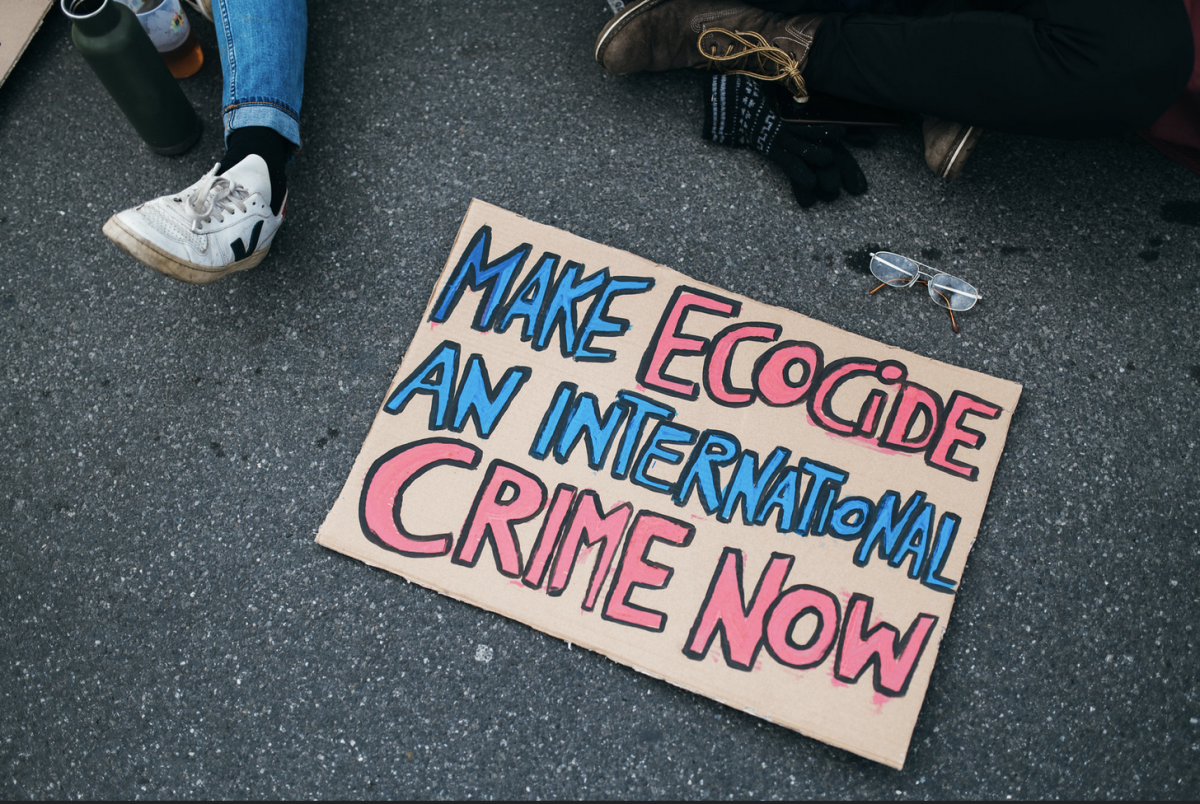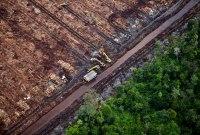Support strong Canadian climate journalism for 2025
The young Canadians leading a push to make ecocide an international crime got a helping hand from several federal politicians on Tuesday, with Green MP Elizabeth May and Liberal MP Jenica Atwin among those calling for the federal government to support their efforts.
Hundreds of young people from across Canada have signed a global petition seeking to make widespread destruction of the environment a crime that can be prosecuted at the International Criminal Court, alongside genocide, war crimes and crimes against humanity.
They hope such a move, which would require buy-in from two-thirds of the countries that have ratified the ICC’s Rome Statute, would encourage political and business leaders and others in positions of power to align their actions with the planet’s ecological survival.
“We believe there should be a legal guardrail for the worst crimes committed against the environment,” Amalie Wilkinson, the founding director of Stop Ecocide Toronto and co-lead of the international movement’s youth wing, said at an event in Ottawa.
Atwin, a former Green MP in Fredericton who crossed the floor in mid-2021 and was then re-elected as a Liberal later that year, said she was involved as a parliamentarian and a mother, not on behalf of the government, but would continue to raise her voice in caucus on environmental issues.
“We are all complicit in the continued ecocide as long as governments across the globe fail to step up and make the profound changes required to address the disaster that is already taking place,” she said via video link from her riding in New Brunswick.
May, her former boss, said Canada would be guilty of ecocide if it were made a crime, citing plans to build the Trans Mountain pipeline expansion, the recent approval of the Bay du Nord offshore project and an unwillingness to ban hydraulic fracturing, also known as fracking.
“If you’re at war with nature and clear-cutting your old-growth while expanding fossil fuel production, you’re engaging in global criminality,” she said. “Whether we call it that or not now, our children and grandchildren, should they survive in a functioning civilization where such things can be discussed, will condemn us.”
Atwin and May were joined by the NDP’s Alexandre Boulerice at the event, while Conservative MP Rob Morrison was due to attend but pulled out a couple of weeks ago due to a conflicting commitment.
Darryl Robinson, a professor in the Queen’s University faculty of law, has been helping to craft the definition of ecocide. Robinson said while criminal law can’t solve every problem, it can play an important role in holding key decision-makers such as CEOs and government ministers accountable for decisions that threaten severe environmental harm.
“Criminal law reflects our values and it shapes our values,” he said, noting that massive environmental harm is currently treated as a regulatory issue where bad actors merely pay a fine and keep doing business as usual.
“It’s not only about prosecution and deterrence, it’s also about sending a message about what we value and sending a message about how seriously we take the environment.”
Morgan Sharp / Local Journalism Initiative / Canada’s National Observer






Comments